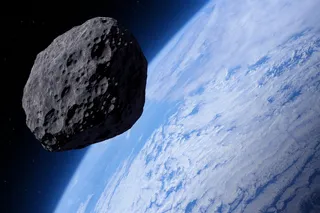Perhaps because we only remember the good stuff? Or only the good suff & famous authors get reprinted. I'm prompted to offer this hypothesis in response to Chad Orzel's commentary that there was a lot of bad space opera even during the "Golden Age" of science fiction. I recall that Zadie Smith once noted that 99.99% (or something to that effect) of Victorian fiction is forgotten and out of print. All that remains read are the "classics," so contemporary audiences have a biased perspective as to the median quality of Victorian-era writers. Of course the insight can be generalized to the arts overall; only the good gets reproduced or remembered. To be fair, some science fiction authors, such as George R. R Martin (who also writes other genres obviously), have claimed that the turn away from "hard" sf rooted in physics and engineering is reflective of a cultural shift. In ...
Why science fiction was better in the past
Explore the Golden Age of science fiction and how diverse perspectives shape our understanding of its legacy today.
More on Discover
Stay Curious
SubscribeTo The Magazine
Save up to 40% off the cover price when you subscribe to Discover magazine.
Subscribe












